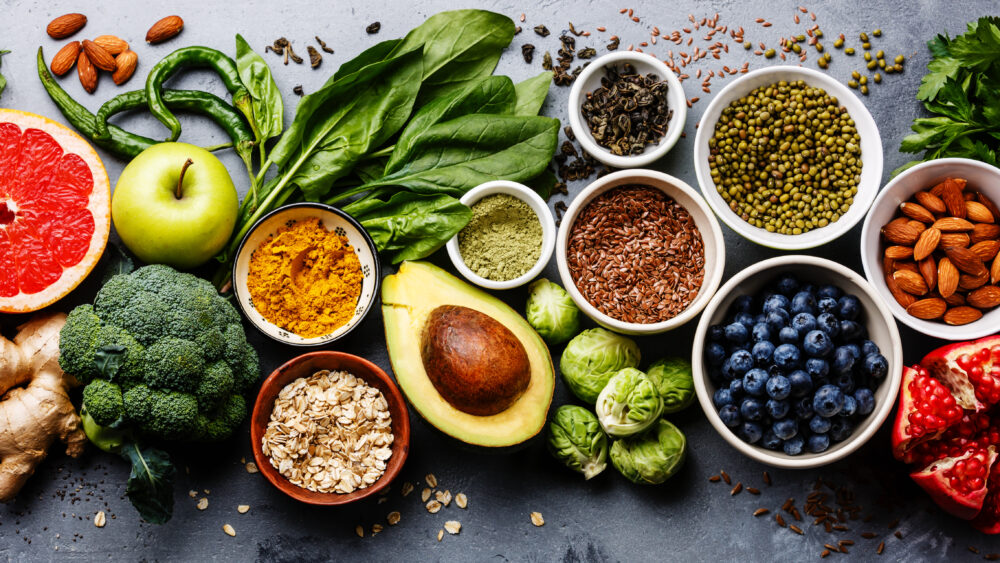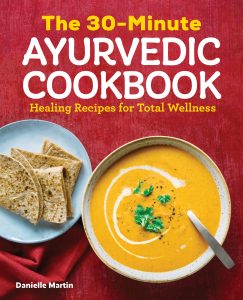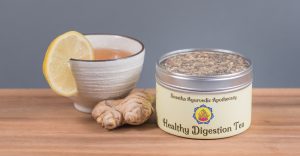 Most of us know the importance our diet has on our health, but with so many fad diets and various theories around eating, it can leave you confused, overwhelmed, and frustrated. So instead of bombarding you with a long list of food rules, I thought I would share with you my most basic, essential, tried-and-true dietary recommendations that I live by each day. With these six practices alone, your health is sure to improve, no matter your age, body-type, or level of wellness.
Most of us know the importance our diet has on our health, but with so many fad diets and various theories around eating, it can leave you confused, overwhelmed, and frustrated. So instead of bombarding you with a long list of food rules, I thought I would share with you my most basic, essential, tried-and-true dietary recommendations that I live by each day. With these six practices alone, your health is sure to improve, no matter your age, body-type, or level of wellness.
Our diet has a profound effect on our energy, strength, digestion, disease risk, weight management, sleep quality, mental functioning, hormonal health, and emotional balance. If you are having issues with any of these areas, adopting even a few of the recommendations below will have a positive effect on your wellness.
As much as I love my herbal friends, you may notice there are no herbs suggested in this list. This is because, the most important dietary practices involve what, when, and how you are eating, not about what supplement you can take to continue eating in ways that do not align with your body. This does not mean that you shouldn’t use herbs to support your healing process as you work on these recommendations, but please use them as a supplement to these changes rather than a replacement.
Although this list is short, it is not necessarily easy. If you are ready for the challenge and the better health that will result, I suggest choosing one or two of these practices to work on as you begin. Once you get these initial changes happening and they become more natural, come back to this list and choose another area of focus; then repeat these steps until you have made these changes a new way of living.
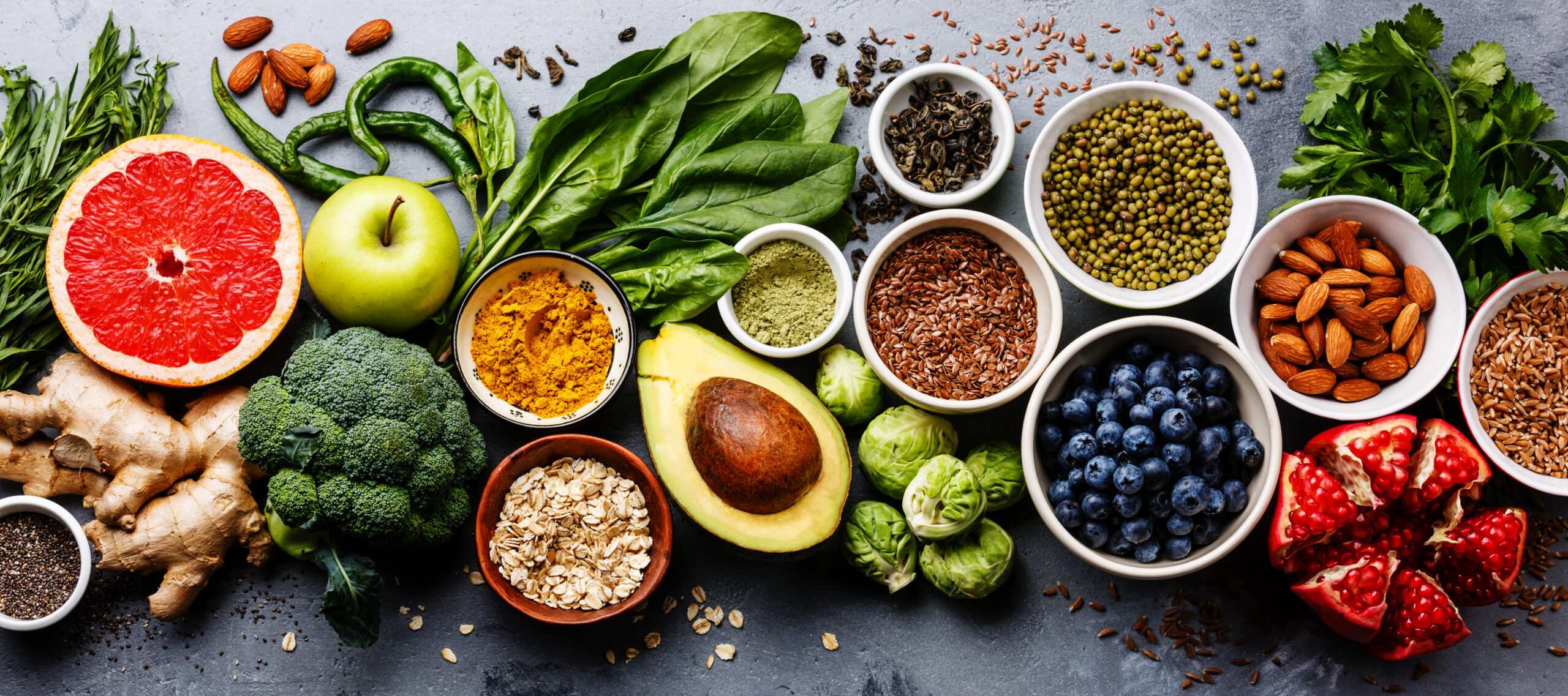
The Six Most Essential Dietary Practices For Better Health
1. Eat real food—Avoid processed, refined, and packaged foods.
Processed foods are foods that have been altered from their original state, often to “improve” their taste, texture, and appearance. They tend to add convenience by being pre-packaged and quicker to cook while lengthening the food’s shelf-life to unnatural limits.
Unfortunately, this convenience comes at a heavy price. Processed foods have been stripped of their original nutrition. They are then filled with multiple food additives, preservatives, and stabilizers along with excessive amounts of sodium, oils, and fat. They often have a long list of ingredients, some of which are hard to pronounce and made in a laboratory.
Eating a diet high in processed foods and especially ultra-processed foods is a major cause of leaky gut, dysbiosis, inflammatory digestive disorders, hyperacidity, and most other digestive conditions; not to mention cancer, diabetes, obesity, heart disease, and numerous emotional-behavioral disorders.
Click here to read more about the different classifications of food according to the NOVA Food Classification System. My suggestion is to ultimately eat foods solely listed in Groups 1 and 2 and avoid foods from Groups 3 and 4. However, you can work in steps by first eliminating all foods from Group 4 (ultra-processed foods); after 2 to 4 weeks, begin to eliminate foods from Group 3 (processed foods) until you reach your final goal of eating a diet free from processed foods!
Common examples of processed foods to avoid:
- Chips, pretzels, and crackers
- Packaged cakes, cookies, pastries, and bars
- White bread, bagels, pizza dough, couscous, and pasta
- Soda and beverages with artificial ingredients or added sugar
- Packaged meal foods (mac and cheese, boxed mashed potatoes, Rice-a-Roni, ramen noodles, etc)
- Canned foods
- American cheese
- Deli meats and prepared meats such as chicken nuggets and fish sticks
- Bacon, sausage, and cured meat
- Breakfast cereal and instant oats
- Pre-made salad dressings and sauces
- Margarine
- Low-fat dairy products
- Ice cream
2. Cook your meals.
With the reduction (and hopefully elimination) of processed foods in your diet, making your own meals is a must! Packaged, prepared, and restaurant foods may sound deceivingly healthy but often will contain hidden ingredients (in the forms of food additives, preservatives, stabilizers, etc) as well as excessive amounts of oils and sodium. Further, the oils used will likely be of the cheap and unhealthy variety and the salt is often table salt (which is much higher in sodium and stripped of its natural minerals).
By making your own meals you will know exactly what you are putting in your body. You can ensure high-quality, fresh ingredients with no surprises. And in my opinion, I enjoy my own cooking far more than anything I get off the shelf or in a restaurant.
If you are new to this concept, this may take some getting used to; but with the proper meal prepping and planning (along with trial and error), you can eat three healthy meals each day. If you are wondering where to begin, here are some tips to simplify this process as you get started (choose the ones that will work best for your schedule):
BREAKFAST TIPS
- Make a double serving of your morning porridge to reheat the following day.
- Make a large pot of oatmeal/porridge on Sunday to eat off of for several days.
- Make steel cut oats in a small crockpot overnight for easy access in the morning.
- Eat leftovers from dinner for a savory breakfast.
LUNCH AND DINNER TIPS
- Meal prep on the weekends for lunches you can bring to work.
- Make a large lunch each day and eat the leftovers for dinner.
- Make a large dinner each night and eat the leftovers for the following day’s lunch.
- Cook a crockpot meal overnight or as you work (this often yields lots of leftovers too!).
- Make sure you have the proper utensils to make meal-prepping easy and accessible! (e.g. insulated thermos, crockpot, pressure cooker, rice cooker, glass Tupperware, etc)
So no excuses! I am a full-time working mom who cooks all of my meals plus the meals of my family who eats on a much different diet. It really comes to making it a priority, and in my opinion, there is no bigger priority than the health and well-being of myself and my family.
Find some healthy Breakfast Recipes here.
Find some healthy Lunch and Dinner Recipes here.
3. Avoid foods that cause a negative reaction in your body or mind.
Our food choices should leave us feeling energized, light, and satiated. They should not create energy crashes or lethargy and should not leave us feeling gassy, bloated, acidic, inflamed, heavy, irritated, spacey, or foggy-heady.
If you are experiencing chronic digestive issues of any kind, the most basic and effective step to healing is to avoid foods that do not digest well for you. Even if you are eating the healthiest, cleanest diet possible, but are experiencing negative symptoms from it—then it is not healthy for you. So if your green juice, salads, or smoothies are leaving you gassy, bloated, heavy, or lethargic, then these “superfoods” may not be so super for you.
If you have a long list of food sensitivities (like myself), this may seem like you have to limit your diet quite a bit in the beginning. But often, as you work to heal your gut and strengthen your digestion, you will find you can slowly add in foods that once needed to be avoided without creating negative reactions. Of course, there may be certain foods you are allergic to or intolerant of lifelong. But as Dr Robert Svoboda says, “It is better to live with Reality than let It live with you.”
4. Focus on lean protein and fiber, with small amounts of wholegrain carbs.
Eating a diet high in refined carbohydrates and low in protein and fiber can lead to inflammation, dysbiosis, digestive disorders, cardiovascular disease, diabetes, insulin resistance, weight gain, obesity, dementia, Alzheimer’s, and mental-emotional-behavioral disorders.
On the contrary, eating a diet rich in lean protein and fiber alongside a moderate amount of 100% whole grains will increase your energy, strength, and stamina while sustaining your blood sugar and appetite and stabilizing your mood.
For each meal, aim to get about 20 grams of lean protein (legumes, nuts, seeds, eggs, chicken, fish) and 10 grams of fiber (colorful veggies, 100% whole grains, legumes) while avoiding refined grains and sugary sweets.
5. Avoid snacking and grazing between meals.
Habitual snacking and grazing between meals overtaxes the Agni (digestive fire) and weakens digestion. Eating too soon after the previous food was taken in causes a traffic jam in the gut and leads to clogged channels, indigestion, improper food combinations, toxic accumulation, sluggish metabolism, and digestive disorders.
Ayurveda suggests waiting until the previous food has been fully digested before taking in more food. Most meals take 4 to 6 hours to transit to the colon, making it best to space out meals in this timeframe and avoid snacking in between.
If you feel like you cannot get through one meal to the next without snacking, this could be a sign that you are not eating enough protein and fiber for your meals. It could also be that you have habituated yourself to snacking at a certain time and therefore your body-mind now craves that food when the time comes around. It is not necessarily easy, but you need to untrain your body from this habit. It may take a few weeks, but with the proper meals and strong willpower, you will be surprised one day when you don’t even think about that craving.
Of course, some individuals with a strong metabolism or a very active lifestyle may need to fuel up between meals. Instead of reaching for an energy bar or bag of chips, I suggest having a small, simple, healthy, high-protein, high-fiber, whole food snack to get you through. Make sure to wait at least 2 to 3 hours after your previous meal and avoid your next meal for at least another 1 to 2 hours.
HEALTHY SNACK IDEAS (choose one per snack)
- Homemade hummus and veggies
- Homemade chickpea flatbread with tahini or almond butter
- Cup of homemade bone broth (add a spoonful of tahini!)
- One handful of nuts (without fruit)
- Homemade plain kefir or yogurt with a spoonful of hemp seeds (add a little honey and cinnamon – do not add fruit)
- Ojas Drink (8 oz serving)
- Ojas Energy Balls (1 to 2)
- Mind-Boosting Mesquite Power Drink (8 oz serving)
Discover more Healthy Snacking Tips here.
6. Avoid eating ALL food after 6 pm.
Eating too much and too late at night will increase congestion, weaken digestion, slow down metabolism, create toxins, and lead to heaviness and lethargy the following morning. Eating a light dinner by 6 pm each night and refraining from all food after, will alternatively strengthen digestion, promote detoxification, and support lightness and energy as you awake.
Eating dinner earlier will also allow an optimal amount of time for intermittent fasting without having to starve yourself the following morning. If you finish eating by 6 pm and then eat breakfast at 7 or 8 am the next day, you have given your digestion a beautiful and much needed 13 to 14 hour break to rest and reset.
For those of you who are used to eating dinner much later, you may have to work in baby steps to train your system on this new eating schedule. Each week, pull back your dinner time by 30 minutes until you reach your final goal. You may find yourself hungry in the late evenings as you begin, but this often stems from your system being habituated to eating or snacking later. With consistency, you will find your cravings and hunger dissipate, especially if you are eating enough protein and fiber throughout the day. And believe me, as a former late-night sweet tooth addict, I am speaking from experience!
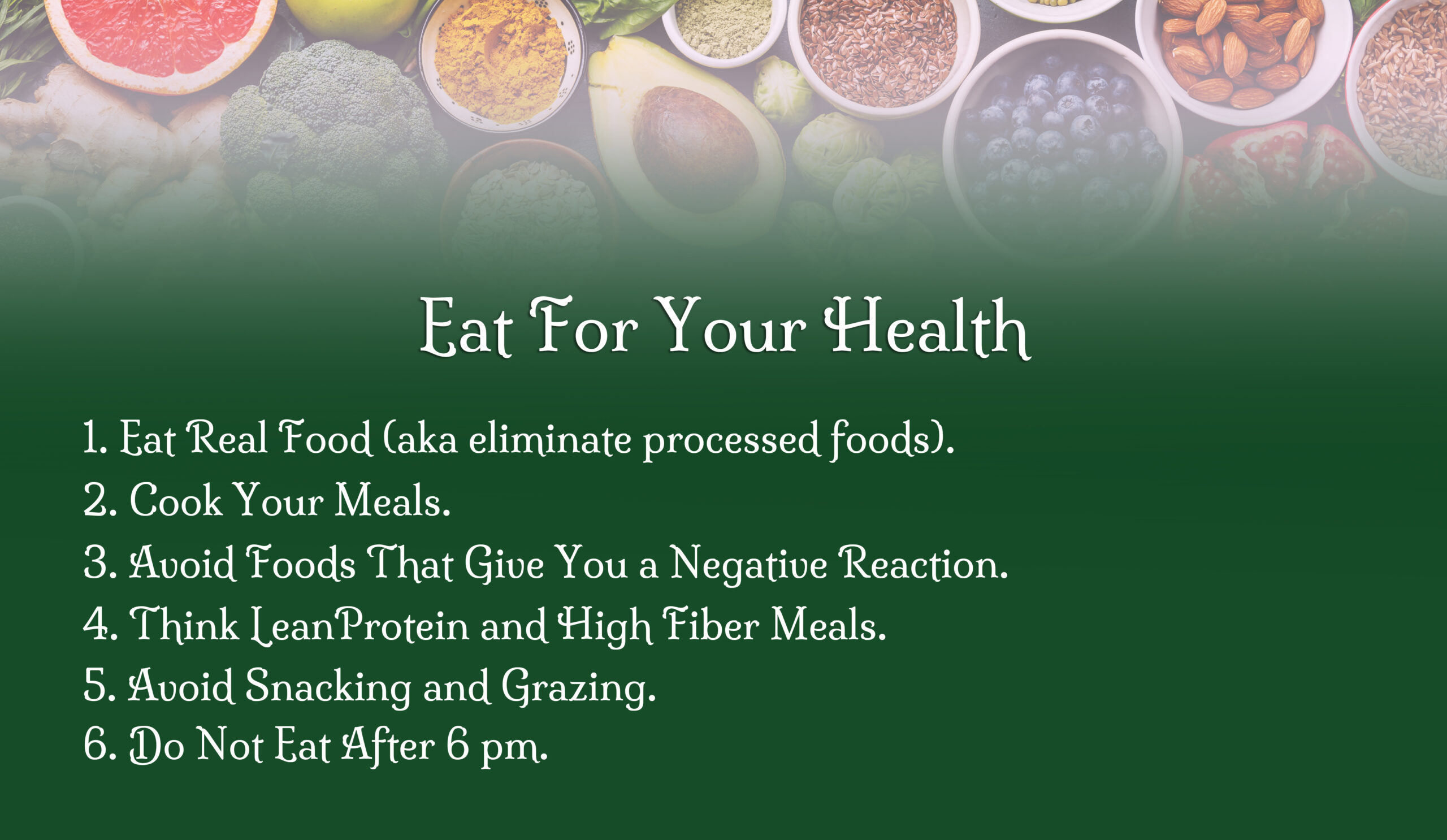
Conclusion
Although countless food guidelines are important for your health, it can get overwhelming on where to begin as you journey into healthier eating. These six basic food guidelines will help narrow your path and your focus. They may not be easy, but I can almost guarantee that with the proper discipline and consistency, adopting even half of these suggestions will change your health and your life for the better. It is never too late to make positive changes and improve your well-being, no matter your age or level of health—so get started today!!
Digestive-Enhancing Products to Support Your Healing:
- Agni Elixir
- Digestive Tonic Tincture
- Vata Honey Infusion
- Pitta Honey Infusion
- Healthy Digestion Tea
- Triphala Churna
- Trikatu Churna
- Detox Tea
Discover more healing recipes with my 30-Minute Ayurvedic Cookbook!
Try our Digestive Spice Blends!
Try our Healthy Digestion Tea!

